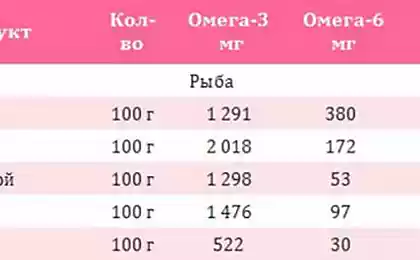225
Alpha Men and Omega Men: Why Women Are Better With Omegas

“Ecology of relationships” is a phrase that is increasingly heard when it comes to harmony in personal life. We are used to paying attention to those who know how to attract views, and traditional stereotypes suggest that the “Alpha man” is a natural leader, strong, confident, ideal for winning hearts. But many women notice that the volume of statements and public display of “power” do not always correlate with the real ability to build deep and healthy relationships.
In contrast to the image of the “Alpha” male, the concept of a male “Omega” arises – a more modest, calm, preferring a quiet approach to life. And quite often it is these, imperceptible at first sight, are more reliable and, in the long run, happier partners. Why is this happening, and what is behind these letters?
This article will try to look at the phenomenon of “Alpha” and “Omega” in the prism of modern relationship psychology. Instead of rigidly dividing into “good” and “bad” men, we examine their typical traits and draw conclusions about which partner models can bring more comfort and joy in the long run.
Main part
1. Alpha and Omega – where did the names come from?
The idea of "Alpha" and "Omega" came to popular culture from observations of animal packs, where the "alpha male" is seen as the leader with the maximum influence. However, when we apply this model to humans, it is important to understand that social organization in humans is much more complex.
- Alpha men. Often associated with a high level of dominance, confidence, leadership qualities. In some interpretations, they are prone to competition and even aggression to defend their place at the top of the hierarchy.
- Omega men. They are characterized by calmness, low need for dominance, lack of desire to attract universal attention. They often have soft social skills and are more empathic.
2. What attracts alphas and what can they disappoint?
Men who can be called “Alphas” easily attract attention. They are often successful in their careers, can speak confidently, their charisma is visible from afar. Studies by the American Psychological Association confirm that people with strong leadership traits (including sociability, a tendency to compete) in some cases achieve rapid ups, especially in youth.
However, this type has a downside:
- Continuous need for recognition: An alpha male may be focused on maintaining his status, leading to high levels of stress and even jealousy if something threatens his "leadership position."
- Despotism or selfishness: Not all Alphas exhibit true despotism, but narcissistic traits and a desire for dominance often go hand in hand.
- Limited emotional intimacy: Some Alphas prefer to portray a strong man, making it difficult to talk openly about feelings, cooperation, and empathy in relationships.

3. Who are Omegas and why can they be more reliable?
Omega men are often left in the shadow of "sounding successes" and high-profile statements. They may not have super-ambitious career plans or vivid manifestations of their self. However, it is among them that there are often loyal, reliable partners who are able to maintain deep emotional ties.
- Less pressure and competition. Omegas do not seek to prove their superiority to the world, which often leads to a calmer and more comfortable atmosphere in relationships.
- High levels of empathy. Unlike the stereotypical male hunter, Omega men tend to listen more, be interested in emotions, respect the personal boundaries of the partner.
- Stability. Although Omega may not have a career, he often has stable interests and values, creating a solid foundation for the family.
4. “Stereotypes about brutality”: why the myth of the “male leader” is outdated
Cultural tradition paints the image of a "male leader", a forager, a defender. But the world is changing, and the classic gender role no longer has to sound so harsh. Women who have achieved social and economic independence are increasingly looking for an ally with whom to walk hand in hand rather than follow in the shadows.
This does not mean that “leadership” is no longer valued. But if there’s an unwillingness to listen and cooperate, a high level of aggressiveness, and a need for dominance, relationships can quickly cease to be a source of joy. Here are a few factors changing the approach:
- Increased equality: Women are no longer considered an “appendix” to men. Mutual acceptance and support are more important than submission.
- Emotional maturity at the forefront: The ability to talk about feelings, to seek compromises, to maintain psychological comfort – all this is valued higher than the “brutal show of strength”.
- Role flexibility: Partners freely exchange household and social functions, and this brings more satisfaction and freedom of self-realization to everyone.

5. Relationship ecology: the fundamental role of trust and support
By “relationship ecology” is meant a kind of harmony in which both parties feel their value, are not afraid to be themselves, freely express thoughts and emotions. From this perspective, the Omega male (calm, supportive, non-hypercontrol) is often a better partner for women who value equality and warmth.
Of course, there are many alpha males who are capable of showing sensitivity and respect. But if you believe the typical classification, their “excessive” leadership ambitions can make it difficult to build an equal relationship. Try asking yourself questions:
- Do I feel comfortable and safe around this person?
- Does he count with my views and plans, or should everything be subject to his desire to dominate?
- Does he support me in difficult situations, is he willing to discuss conflicts in peace?
6. Benefits of Omega Style in the Long Term
If we talk about a stable partnership, when people together raise children, build a common future, omega-style can give a whole range of advantages:
- Less competition within the family. There is no “struggle for power”; instead, the common goal is to maintain coziness and well-being.
- Flexibility in problem solving. A man who is not burdened with the desire to prove his “dominant role” is more willing to share household or parental responsibilities.
- Emotional openness. Omegas are often more willing to talk about feelings, which helps smooth conflicts and prevent resentment from accumulating.
- Psychological resilience. Modest confidence without demonstrative "aggressive courage" gives a more even background level of stress.
7. Exceptions and individual characteristics
In fairness, it is not that any woman will always prefer Omega. Different people have their own psychological patterns and ideals. Some people like the bright expression of Alpha, and they are willing to put up with its shortcomings, just to feel the drive and “security”. For others, the ideal will be a caring and calm man, avoiding the show and prone to deep dialogue.
It is important to remember that Alpha and Omega are generalized types, not absolute labels. In real life, a man can combine the features of both archetypes depending on the specific situation. Moreover, there are "Betta", "Gamma" and other "literal" classifications. All these are conditional models that help to better understand which behavior patterns are more characteristic of a particular person.
Conclusion
Society has long cultivated the image of the alpha male as the perfect man: an aggressive leader capable of challenging the world. But in today’s reality, it is increasingly clear that “leadership” qualities alone are not enough to create strong and happy relationships. Life requires flexibility, empathy, listening and caring—all of which are often more pronounced in omega types.
This does not mean that Alpha or Omega labels are “good” or “bad.” Rather, they are two different styles of behavior and interaction. If a woman is looking for a partner who will be ready for equality, deep emotional connection and quiet cooperation, then Omega men are often more suitable. Their soft nature and desire for dialogue create a more “environmental” environment in the relationship, helping to avoid rigid hierarchy and competition within the family.
In the long run, women who value stability and warmth may be more comfortable with "omega types" than with "alpha leaders" focused on constant self-affirmation. The final choice, of course, is individual. Listen to your feelings and notice how a person behaves not only in moments of triumph, but also in everyday situations, how he communicates when you need support. Often it is these “little things” that say more than any loud show of power.























